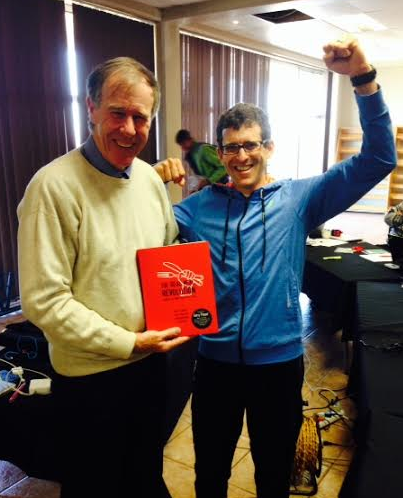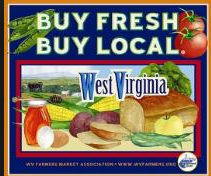 We all learn from our travels. By witnessing amazing accomplishments and the spirit of others trying to change the world in places of need, there is much to learn and appreciate. I recently had the privilege of returning to South Africa to teach an International Sports Medicine Symposium with Dr. Tim Noakes. Dr. Noakes has changed the way we look at everything in endurance sport, running, and health in his 40-year career. He is responsible for safety measures in place for all races now to prevent over-drinking. Thirty years ago, the sports drink industry convinced us that we must drink before we are thirsty and this led to a number of deaths from over-hydration or hyponatremia. After years of debate and fight with the science and many casualties from this preventable condition, international road racing guidelines now reflect his work as does his 400 plus page book “Waterlogged”.
We all learn from our travels. By witnessing amazing accomplishments and the spirit of others trying to change the world in places of need, there is much to learn and appreciate. I recently had the privilege of returning to South Africa to teach an International Sports Medicine Symposium with Dr. Tim Noakes. Dr. Noakes has changed the way we look at everything in endurance sport, running, and health in his 40-year career. He is responsible for safety measures in place for all races now to prevent over-drinking. Thirty years ago, the sports drink industry convinced us that we must drink before we are thirsty and this led to a number of deaths from over-hydration or hyponatremia. After years of debate and fight with the science and many casualties from this preventable condition, international road racing guidelines now reflect his work as does his 400 plus page book “Waterlogged”.
His next mission is similar to ours locally in Shepherdstown, WV –trying to shift nutritional paradigms to not just treating and preventing obesity but to assist people in feeling better and living longer and fuller lives. His foundation now is doing the work to prove that the carbohydrates are driving obesity. http://thenoakesfoundation.org/. South Africa, like the US, is suffering from an enormous increase in obesity and metabolic diseases over the last 30 years. I encourage you to visit the site and if it interests you follow him on twitter hashtag @proftimnoakes
His book “Real Food Revolution” is flying off the shelves in South Africa and first 100,000 sold out in 2 weeks. He gave me a copy to bring back . He is starting the Real Meal Revolution!
To give a little background on how we got here in America and the rest of the world, three paradigm shifts with unintended consequences have occurred in the timeline of food and health:
ref: Real Meal Revolution
1. As strange as it may sound the introduction of agriculture introduced the opportunity to get too efficient at refining mass production of low nutrient density and cheap processed food. Look around a supermarket and outside of the fresh food aisles; it is hard to find anything that hasn’t been processed.
2. In 1977 the US Dietary Guidelines for America went mostly unchallenged as it encouraged the high consumption of grain-based and mostly processed foods in the Food Pyramid. The increase to the world’s burden of metabolic diseases strongly suggests that this may have not been the right direction to take.
3. The invention of genetically modified foods with higher sugar content is different from the original fruits of nature and may be shaping our tastes and waist lines.
 The solution is local and we are not alone with this vision. In our region of West Virginia, we are applying for $100,000 in USDA funds to support connections between the community, physician offices, and farmers markets (the Farmacy).
The solution is local and we are not alone with this vision. In our region of West Virginia, we are applying for $100,000 in USDA funds to support connections between the community, physician offices, and farmers markets (the Farmacy).
Last month, Agriculture Secretary Tom Vilsack announced that USDA is making a historic $78 million investment in local and regional food systems, including food hubs, farmers markets, aggregation and processing facilities, distribution services, and other local food business enterprises.
“The 2014 Farm Bill has given USDA new tools, resources and authority to support the rural economy,” Vilsack said. “Consumer demand for locally-produced food is strong and growing, and farmers and ranchers are positioning their businesses to meet that demand. As this sector continues to mature, we see aggregation, processing, and distribution enterprises across the local food supply chain growing rapidly. These historic USDA investments insupport of local food give farmers and ranchers more market opportunities, provide consumers with more choices, and create jobs in both rural and urban communities.”
The community members most at risk of metabolic illness are those who have the most need. Our Physicians’ Farmacy project will support sales at four farmers markets in eastern West Virginia by encouraging federal nutrition assistance recipients to shop at the Charles Town, Shepherdstown, Veterans Administration Hospital , and Morgan’s Grove Farmers Markets. With an emphasis on those at risk of food insecurity or complications due to poor nutrition, new customers using WIC, SNAP, and Senior Farmers Market vouchers will benefit from improved access to fresh, nutritious and local produce, dairy, and meat at these markets. 20 local partners are supporting this grant and it will take a collaboration to pull it off. Grant award winners announced in September.
 On the final leg of the long trip home from South Africa, a short Atlanta-to-Washington D.C. flight, I sat next to a woman of West African descent named Amatul. She was writing down her grocery list. I commented to her: “Wow that is a great list of foods.” We chatted a bit about her family roots and their traditional food and cooking. I then tell her she is really close to what TimNoakes has figured out and I let her browse the book.
On the final leg of the long trip home from South Africa, a short Atlanta-to-Washington D.C. flight, I sat next to a woman of West African descent named Amatul. She was writing down her grocery list. I commented to her: “Wow that is a great list of foods.” We chatted a bit about her family roots and their traditional food and cooking. I then tell her she is really close to what TimNoakes has figured out and I let her browse the book.
By end of flight she is copying recipes from the book. As we get ready to land she scribbles: “full cream fat okay ??!!” This to me says it all: question things, understand the science, try new things, and if it works then embrace it. Amatul is a teacher and I could sense she was a thinker.
For more on the topic of health eating and to view the recent WVU Mini Med School presentation on “The Right to Bear Farms” and to download the local Farm Market and CSA guide, go here http://eastern.hsc.wvu.edu/mini-med-school/2014-courses/“the-right-to-bear-farms”-presented-by-mark-t-cucuzzella-md-and-gus-schumacher/
Eat well.

Thanks for sharing this. Refined carbohydrates are slowly killing us.
Another good book on this subject is “Real Food: What to Eat and Why” by Nina Planck. The book destroys the notion that animal fat and cholesterol are bad for you and is well-annotated with references to the scientific studies that support the author’s recommendations. The author grew up on a small farm in Virginia selling vegetables at farmers’ markets.
Do we know when it will be published outside South Africa?
Paul, it will come here soon! stay tuned. Mark
Hi Dr. Mark-
What is your evaluation of Dr. Noake’s theory on a high fat diet? This is sounding like a replay of the “Atkins” style diet which was popular a few years ago.
A simple fix like this for a complex problem has the issue of sounding “too good to be true”. Dr. Noakes always seems like the consummate exercise scientist, but is the research behind what he is advocating sound? The nutrition analogy to “Waterlogged”?
I’ll get the book when it becomes a little more easily available here in the USA.
Regards,
Greg
Greg,
Tim is all about eating real food and identifying if you are carb intolerant, and adjust from there. for someone who is carb intolerant a high quality Atkins style diet is the way to go. Good quality meats, fats, and carbs from some leafy veggies . thanks for comment. Read his book when it comes to the US
Mark